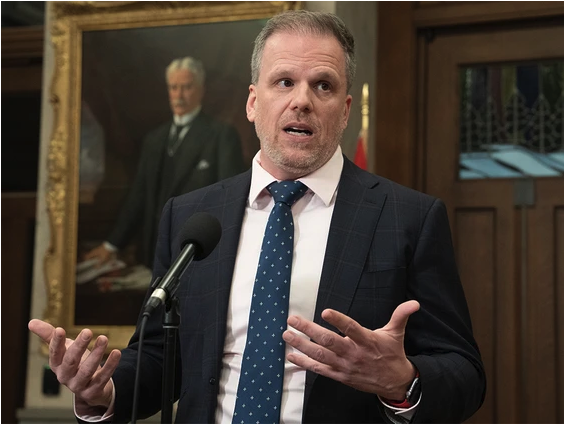
Much of medicare’s dysfunction comes from compromises made to win votes in moments of political weakness
A few weeks ago, I was chatting with a popular talk-radio host about the 177-to-2 vote on the Medicare Care Act, 1966. He said, “Who were the two who voted against it?”
This sparked a short trip into parliamentary records to uncover events around the “unanimous” and “near-unanimous” votes that gave us medicare.
As always, the details reveal a different story. The article is on the National Post site.
Enjoy!
Politics trumps patient care when governments are failing
Policies that are not necessarily the best for the long term, including those affecting health care, are often implemented by weak governments only concerned about votes, writes Shawn Whatley. (from the photo caption)
Medicare emerged during failing and minority governments, much like the time we find ourselves in now. Three pillars of medicare legislation passed with near unanimous support during periods when the opposition could not risk debate.
The first pillar of medicare, the Hospital Insurance and Diagnostic Services Act (HIDSA), passed unanimously in 1957. The majority Liberals had been in power since 1935. HIDSA introduced dollar-for-dollar cost sharing between the federal government and the provinces. The Diefenbaker Progressive Conservatives offered unanimous support, and months later won an upset minority. In 1958, Diefenbaker won again — the largest majority in Canadian history, up to that point.
By 1963, voter sentiment had reversed, and voters had tired of Diefenbaker. The minority Liberals tabled the Medical Care Act. The MCA promised to expand Parliament’s 50:50 funding to include doctors’ services. Provinces needed to nationalize medical insurance and create publicly-funded, single-payer provincial insurance plans to qualify for federal funds. Parliament passed the Medical Care Act in 1966 by a vote of 177 to two. The two “nays” came from Social Credit MPs: Robert N. Thompson, from Alberta, and Howard Earl Johnston, British Columbia. The Liberals, Progressive Conservatives and NDP offered unanimous support. Pierre Elliott Trudeau won a majority in June 1968, and the MCA took effect weeks later on July 1.
The last pillar of medicare, the Canada Health Act, came when Pierre Trudeau faced historically low voter support, much like his son does now. The Canada Health Act, 1984, leveraged public fury over hospital user fees and physician “extra billing,” even though extra billing accounted for only 1.3 per cent of total physician billings under medicare. An amendment to the MCA could have fixed the issue, but new legislation presented a perfect wedge.
Mulroney saw through the trick. He ignored the bait and whipped the vote. The CHA passed unanimously, and the PCs went on to redefine “landslide election” victory that fall. It remains the largest majority government in Canadian history.
Much of medicare’s permanent dysfunction comes from compromises politicians made to win votes in moments of political weakness. Medicare escaped meaningful debate.
Remember, the Diefenbaker PCs supported social programs and even appointed the first Hall Commission on universal medical insurance, 1961-1964. But they abandoned program design to left-leaning visions in a failed quest to regain voter support. Again, political survival became the only concern and compromise knew no limit.
As Carson Jerema, National Post’s Comment Editor, recently put it, “All governments debase themselves for partisan advantage, but it isn’t clear that (the current Liberal) government is capable of doing anything else. Every policy, every action, every pronouncement is designed, not to achieve a particular goal, but to wedge the Conservatives, or appease the NDP.”
Wedge-and-bait politics creates serious risk for Canadians. Radical ideas escape debate and run unopposed. Weak governments do not worry about long-term impact. They only worry about how to make the opposition look bad. The opposition also ignores long-term impact, while fretting about whether critique could weaken voter support. For example, Conservative Leader Pierre Poilievre held back criticism of the capital gains tax until days before the vote in Parliament, no doubt to lessen time for the left to foment negative press.
All politicians face a fundamental dilemma: stick to principles or pursue popular support? Stand up for what you believe, and never get elected, or compromise to get into power?
Minority governments generally require compromise. But compromise leaves voters shackled with ideas we can never adjust or abandon, especially when passed with “unanimous” or “near-unanimous” support.
Polling shows Conservatives have strong support in Canada right now. Let’s hope Poilievre feels strong enough to oppose the inevitable wedge-and-bait politics we can expect this fall.


